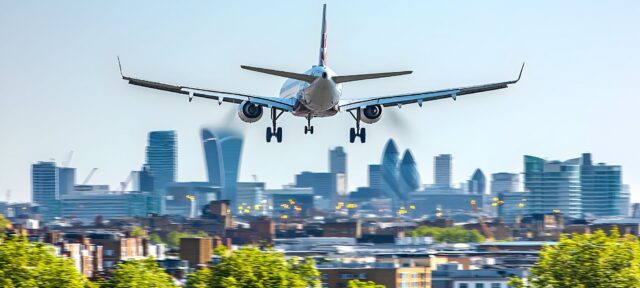
A range of support measures will be needed to ensure future air travel becomes more sustainable as the industry aims for net-zero carbon emissions by the middle of the century, a report by PwC has concluded.
The firm’s Road to Jet-Zero study highlights the vital role the sector will play in the UK’s transition from a fossil fuel based economy to one primarily powered by renewable sources, and in delivering on the goal of net zero greenhouse gas (GHG) emissions by 2050.
It sets out how this will need additional market based measures (MBM) alongside fiscal policy if the sector is to decarbonise at scale.
Aviation’s carbon footprint
Aviation accounts for 1.9 per cent of GHG emissions globally, and the UK sector accounts for as much as 7 per cent of the country’s total carbon emissions, a discrepancy that highlights the urgency in the government’s decarbonisation targets, PwC said.
Amal Larhild, PwC UK Environmental, Social and Governance Tax leader and author of the report, said: “Almost three million people took to the skies from the UK in January and this number will rapidly increase as travel restrictions ease world-wide, with global industry figures suggesting 4 billion people will embark on commercial air travel by 2024.
“If the UK is to meet its ambitious targets of net zero emissions by 2050, it’s clear that we will all need to substantially re-evaluate and adjust the ways in which we live, and this includes how we travel both around the UK and internationally.”
‘Fully onboard with this journey’
She added: “The aviation sector is fully onboard with this journey, however there is no single policy measure in place that is sufficient enough to support them in this climate transition challenge.
“It’s vital that a combination of measures that can best balance the costs to the industry and consumers with the environmental benefits of decarbonisation is secured swiftly. Without it, aviation may fail to get far enough off the ground to make the impact required or expected by their passengers and investors.”
Achieving net zero emissions by 2050 in the UK aviation sector will require significant and sustained investment. A report from the Office of Budget Responsibility, for instance, finds that the net cost of the UK reaching net zero by 2050 to be £321 billion, or just over £10 billion per year.
Carbon offsets and emissions trading schemes
According to the Road to Jet Zero report, fiscal policy in addition to MBMs like emissions trading schemes (ETS) or carbon offsets will be helpful in supporting decarbonisation in the aviation sector by aligning industry, government and community interests.
When taken together the two policy interventions leverage innovative technologies, trade, investment, tax, and regulation to create the conditions for long-term GHG reductions and sustainable aviation, PwC said.
Long-term decarbonisation goals
Diane Shaw, PwC UK Aerospace, Defence and Security Consulting leader, said: “By implementing the right combination of proportionate, targeted, and complementary policy tools from design through to commercial operation, governments can support the aviation industry in reaching its long-term decarbonisation goals.
“There is an imperative to accelerate sustainable research and development innovations as well as improvements across manufacturing, operation and retirement phases but this must be done alongside incentivising meaningful shifts in the behaviours and choices of consumers, airlines and aerospace manufacturers. The two must go hand in hand if we are to gain traction quickly.
“By providing subsidies for successful innovations in sustainable R&D, manufacturing, operations, sales and retirement, governments can become trusted partners with industry, consumers, and the wider community on the collective journey toward sustainability and jet-zero.”
Subscribe to the FINN weekly newsletter
















